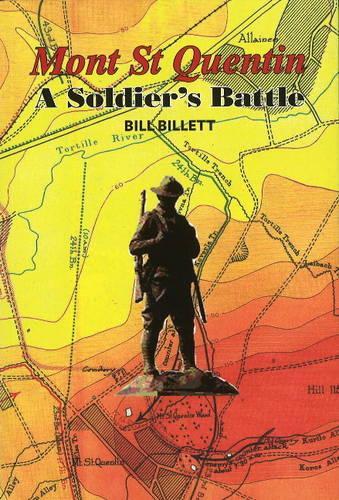
Mont St Quentin: A Soldiers Battle
(Paperback)
Publishing Details
Mont St Quentin: A Soldiers Battle
By (Author) Bill Billet
Rosenberg Publishing
Rosenberg Publishing
1st August 2009
Australia
Classifications
General
Non Fiction
Battles and campaigns
940.40994
Physical Properties
Paperback
192
Width 150mm, Height 225mm
Description
The Battle of Mont St Quentin was fought over 31 August to 5 September 1918. It was the third significant Australian victory -- after Villers-Brettoneux and Hamel -- that helped bring World War I to an end, and it incorporated advances in strategic planning and military technology that circumvented the stalemate that the Western Front had been for some time. Commander of the Australian forces was General Sir John Monash, who planned the operation in detail and with innovation. After frontal attack proved unfeasible, he organised a free-manoeuvre assault, using old trench systems for cover in advance, and operating without tank support or artillery moving barrages. The village of St Quentin was taken, held against counterattack, and the Australian forces then advanced on Peronne, which was cleared street by street and house by house. Major Bill Billett, who served in both the British and Australian Military Forces, gives a detailed account of the planning and execution of the battle, never forgetting the sometimes horrific human experience of the battle, or the courage that led to eight members of the First AIF being awarded the Victoria Cross. He also discusses advances in military tactics, in maintaining morale and in the technology of battle, before then examining the record of Monash as a military commander. Including historical and contemporary photographs, as well as maps and diagrams, the book also gives travel information for those who wish to make a pilgrimage to the Mont St Quentin area and see for themselves where and how the battle was fought.
Reviews
'well-scripted and crafted- an important contribution to the history of those years.' -- Royal Naval Sailing Association Journal Winter 2009 'A good informative read on both the battle and the tactics used.' -- Antique & Collector's Trader
Author Bio
Major Bill Billett served with the Royal Marines and the Australian SAS, and on retirement from the army was for some years Curator of Arms and Armour at the Museum of Victoria and in retirement is an Honorary Associate of the museum. He lives in Victoria.
